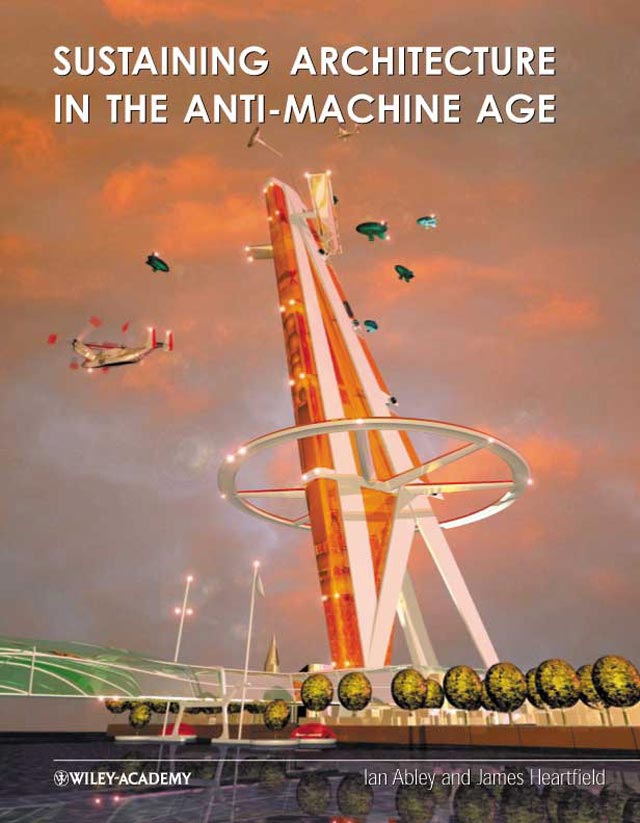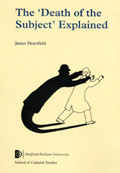Session 3: What Future for the Developing World?
Proceedings based on the notes of John Theaker, edited by Caspar Hewett
The Chair, Mo Lovatt, opened by reminding the audience
of the definition of sustainable development in the Brundtland Report as
'development which meets the needs of the present without compromising the
ability of future generations to meet their own needs.' She introduced the three
speakers; Ceri Dingle, Director of the development charity WORLDwrite,
Geoff Parkin, Lecturer in Sustainable Hydrology, Water Resource Systems
Research Laboratory (WRSRL) and Jan Simmonds, Christian Aid North East
and asked them; Where does of sustainable development leave present generations?
What can the developing world realistically aspire to?
Ceri Dingle began by asking whether sustainable development
is the way forward for the developing world. She asked for a show of hands from
the audience on whether they thought that people of the developing world should
have all the same opportunities as we have to which a large majority agreed that
they should. She then asked; What if people in the developing world want things
that some people in the West don’t like such as motorways and roads, highly
mechanised agriculture, chemical fertilisers, genetically modified crops,
industrialisation, multi-nationals, fertility treatment, nuclear power, sky
scrapers, MacDonalds, Coca Cola, big hotels, airports and Play Station.
Development in the West means that we have a great deal of
freedom and have all the material benefits of modern life. The problem Dingle
has with sustainable development is that it does not say that the
developing world can have the same. Sustainable development is an argument for
restraint and compromise in order to preserve the environment - this underlying
assumption is not questioned generally, even by critics of the idea of
sustainability. Dingle thus characterises the discussion as
"Sustainababble" – Her main objections are that sustainable
development;
- prioritises nature over human beings
- exaggerates environmental problems
- romanticises nature
- advocates technology for the developing world we wouldn’t accept
- denies aspirations
- advocates low expectations
- assumes people from developing world are unlike us
- ties people to the land and subsistence life styles
- does not think people want, can or should have what we have
- allows the richer countries to have a monopoly on manufacturing.
- holds back investment
- holds back scientific advances
- stops major infrastructure projects
- blames the poor for environmental degradation
- blames developing countries for problems
- suggests we should consume less rather than produce more
- suggests there are too many people in the world
- ensures the status quo for the developing world
- is not about making people in the developing world rich
- is not about serious development and has nothing to do with global
equality
Ceri Dingle thinks there is an implicit assumption in the
discussions around sustainable development that people from the developing world
are different from us. This used to be called racism. In fact, according to
Dingle, people in the Amazon want what we have - they want roads and running
water and trainers. Many proponents of sustainable development romanticise
nature and the way people in the developing world live; some NGOs claim that
they do not want what we have, but this is counter to Dingle’s experience as
director of WORLDwrite; people in developing countries generally aspire to
living standards comparable to those in the West. She argued that if you are
serious about global equality then you must ditch any concept that says they
cannot have what we have.
One of the latest things, which Dingle finds appalling, is
the promotion of Sustainable Livelihoods by the Department for International
Development (DfID). The argument is that this is important because progress in
poverty reduction should be lasting rather than fleeting, but this obscures the
fact that they are prioritising the environment over people. As an example of
how low their aspiration are, DfID aims to halve the number of people that live
on less than a dollar a day over the next 10 years.
The second speaker, Geoff Parkin of Newcastle University, is
currently working in Middle East water resources projects. He was glad to see
the discussion moving towards the international arena. The SUSMAQ (Sustainable
Management Of The West Bank And Gaza Aquifers) project deals with the aquifers
on the boundaries of Palestine and Israel and has identified three measures for
assessing successful water resource management – environmental, social and
economic. Parkin thinks that there is too much emphasis on gross domestic
product (GDP) - this is promoted by politicians and the media. While there have
been attempts to introduce other indicators, they don’t get any common currency
for the developed and developing world. He argued for a need to come up with
new ideas about growth that take into account social and environmental aspects –
we need a transparent way to look at global well-being so that we can have
proper arguments about progress. Parkin would like to get away from the idea
that ‘stuff’ is all that matters – a list of material gains. The SUSMAQ project
is looking not only at the amount of water in the ground but also at social
indicators such as the amount of the population connected to networks, the ratio
of wealth, to make sure there is equity in the social field. When trying to make
some assessment of sustainable development it is important to look beyond
individual countries and look at what effect any measures taken have on other
people and countries. One of the key aspects of water is what effect it has on
agriculture. Account also needs to be taken of the fact that water moves around
the world - for example in the Israel-Palestine situation water has been
diverted from the Palestinian people for irrigation of Israeli crops. Thus
sustainability cannot be considered in isolation.
Geoff Parkin ended by pointing out that our current situation
in the UK was built upon exploitation of natural resources in the colonial
period – but now we are exploiting human labour around the world and basing our
wealth on this. Economy and power are always linked together and the equity of
distribution depends on power at all levels. Some of Parkin’s work has shown
that water distribution does not lead to equitable development – it depends at
the end of the day on political power.
The final speaker, Jan Simmonds, was part of the team which
set up Traidcraft and was Personnel Director for many years before managing the
Traidcraft Exchange assistance programme for fair trade businesses in India and
Bangladesh. She also set up International Resources for fairer trade, an NGO
helping small businesses in western India. She joined Christian Aid in 1997 to
manage the organisation's fundraising, campaigning and awareness raising in the
North East and is a director of Shared Interest, the fair trade investment
society.
Simmonds pointed out that the developing world is a big place
inhabited by 5 billion people and that it would be very hard to reach consensus
about what these people want. She thus decided to focus on a particular country
for her introduction; Bangladesh. Bangladesh is largely an agricultural economy
with people living pretty much as they did 1000 or even 2000 years ago.
However, unlike the people of the past, people in Bangladesh today know about
the West and they are no longer content with the world they have. However, it is
difficult to see how Bangladesh can achieve this development without
destruction. There are some examples where the government have taken positive
steps. For example plastic bags are banned in the capital, Dhaka, and public
transport is good. It is, however, difficult to see how they can develop great
wealth without at least our co-operation – the trade rules need to be very much
more favourable. In the 1970s Bangladesh was exempted from certain restrictions
on trade such as the multi-fibre arrangement; This exemption has changed lives
and led to the development of a whole industry. You could argue that this has
done more for women than any other measure including the work of Christian Aid.
Simmonds drew attention to research into the thousand or so varieties of rice
that grow in Bangladesh in search of the heartiest strains. She argued that
funds currently being spent on research into genetic modification of crops could
be better spent on this type of research.
According to Jan Simmonds, Bangladesh needs the West to stop
clattering around the world being anti-Islamic; Muslim fundamentalism is growing
in the villages and several of Christian Aid partners have reported problems
with the women’s program as a consequence. This is particularly problematic
since Christian Aid’s experience is that if you help women to develop then this
has enormous impact on children and the future. Bangladesh boundaries were set
up arbitrarily by colonial powers and its people have problems understanding why
these boundaries should exist. These are artificial boundaries set in earlier
days. If any of the predictions on global warming are true a large proportion of
Bangladesh will disappear under water and these people will need somewhere else
to live. Christian Aid wants to challenge the scandal of poverty. She closed by
stating that it is not the life of the poor but the life of the rich that is
unsustainable.
In the discussion, Ceri Dingle stated that the problem with
the fair trade discussion is that it does not address the lack of productivity
in the developing world; unless you deal with the productivity issue you would
expect the poor farmers to continue to operate on a low level of subsistence,
gaining no wealth or freedom.
On the water question Dingle wondered why people worry about
water scarcity when we have the technology to desalinate. Desalination may be
expensive, but surely it could solve the water shortage problem in many
countries. Geoff Parkin outlined two key proposals for sorting out the water
situation in Israel and Palestine; A desalination plant is under design but its
completion will mean that the Israelis would be in a position to sell water to
the Palestinians. This highlights the question of who has the power over
resources; at present the World Trade Organisation (WTO) is controlling the
resources and the way in which trade is being run. The Palestinians are not in a
position to create internal wealth. It is amazing that the US and the West are
not really tackling this as it is causing so many problems around the world; the
essential problem is the political situation.
John Gowing of Newcastle University took issue with Ceri
Dingle’s view of sustainability. He highlighted the way the Brundtland
commission in 1987 dealt with the issue of development versus sustainable
development and a consensus was reached. In 1992 around a hundred nations
gathered at the summit in Rio de Janeiro and agreed, and bought into,
sustainable development. He asked if Dingle really believes that a hundred
nations knowingly agreed to something that is disadvantageous to them. Dingle
saw this reading of events as erroneous; Developing countries bought into the
Rio summit on the back of the promise of aid, much of which never materialised.
By the time the Johannesburg summit of 2002 took place the view in the
developing world had changed to one of suspicion of false promises.
On the question of global warming the panel were agreed that
it is fairly certain that it is taking place. However, there is a question
regarding its causes, in particular how much of contribution human activity
makes to it. Some scientists claim that we contribute only 10% to the effect.
It is a problem but we need to focus our efforts on the problems we really can
do something about. Ceri Dingle asked why we cannot protect Bangladesh from
floods if we can create Holland.
Top of page
Environmental Ideas in the 21st Century
Sustainability Here and Now










